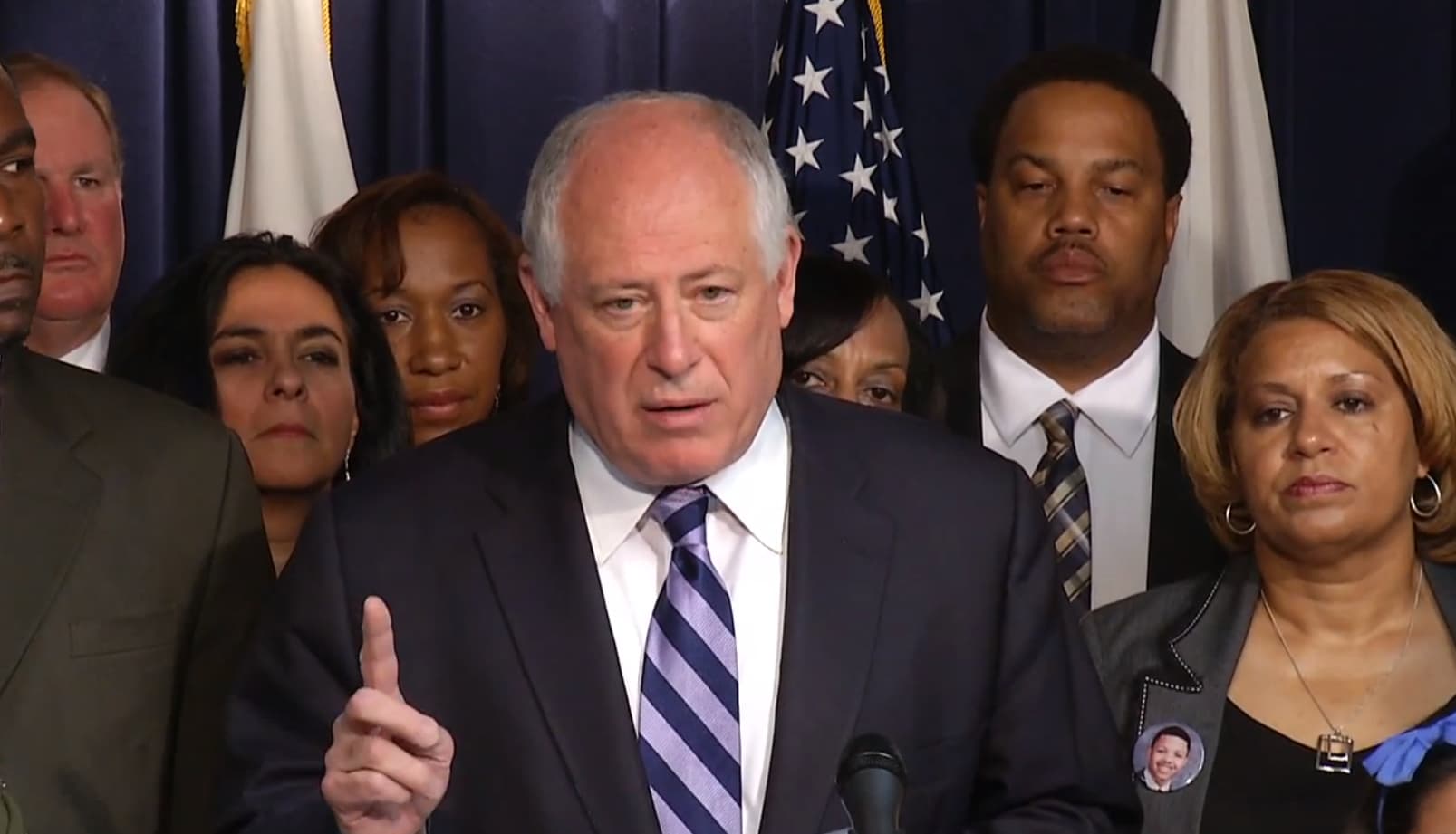Illinois Governor Unilaterally Changes State Concealed Carry Bill
OutdoorHub Reporters 07.03.13

For many, concealed carry in the state of Illinois was once just a far-off fantasy. Illinois was the only state in the nation with an outright de jure ban on concealed weapons, and it had looked to continue that way until a federal court struck down the ban late last year.
The federal appeals court that made the ruling gave Illinois legislators 180 days to create a new, constitutionally acceptable law. After compromises and setbacks, the state Senate and House of Representatives forwarded a bill, House Bill 183, to the governor’s desk.
The legislation was sent to Governor Pat Quinn just days before the end of the 180-day deadline on June 9. That deadline was then extended by an additional 30 days after a request made by Attorney General Lisa Madigan. On July 2, seven days before the new deadline, Governor Quinn took an “amendatory veto” action on the bill that included several important revisions. Quinn had previously opposed the bill and the ruling by the federal court.
“My foremost duty as Governor is to keep the people of Illinois safe,” Quinn said in a press release. “This is a flawed bill with serious safety problems that must be addressed. There are too many provisions in this bill that are inspired by the National Rifle Association, not the common good. Public safety should never be compromised or negotiated away, and I urge members to uphold the common sense changes I propose today.”
The list of changes to HB 183, as reported in the governor’s press release, included:
- Alcohol: HB 183 allows people to carry guns into establishments serving alcohol, including most family restaurants and other places where large amounts of alcohol are consumed. Mixing alcohol with guns is irresponsible and dangerous. Illinois must keep guns out of any establishment where alcohol is consumed.
- Home-Rule: HB183 strips the authority of home-rule governments to enact future laws on assault weapons to protect their local communities. This NRA-inspired provision is not in the interest of public safety or local communities. In fact, these provisions have nothing to do with the right to carry a concealed gun and have no place in this bill. Local governments should always have the right to strengthen their own ordinances to protect the public safety of their communities.
- Signage: Under the bill, loaded guns would be allowed in stores, restaurants, churches, children’s entertainment venues, movie theaters and other private properties, unless the owner visibly displays a sign prohibiting guns. As a matter of property rights, the legal presumption should always be that a person is not allowed to carry a concealed, loaded gun onto private property unless given express permission.
- Employer’s Rights: As currently drafted, this bill infringes on an employer’s ability to enact policies that ensure a safe and secure work environment. According to the U.S. Bureau of Labor Statistics, shootings are the most frequent cause of workplace fatalities. To best ensure a safe work environment, employers should have the right to enact policies that prohibit employees from carrying guns in the workplace and in the course of performing employment-related duties.
- Number of Guns and Ammunition: The bill provides no cap on the number of guns, or on the size or number of ammunition clips that may be carried. Instead, it allows individuals to legally carry multiple guns with unlimited rounds of ammunition, which is a public safety hazard. In the interest of common sense and the common good, it should be clarified so that a license will permit an individual to carry one concealed gun and one ammunition clip that can hold no more than 10 rounds of ammunition.
- Mental Health Reporting: While HB 183 appropriately seeks to improve mental health reporting, as Governor Quinn called for during his State of the State address in February, the positive impact of these measures is limited by the lack of clarity in the notification process. Clarification is necessary to ensure these enhancements to mental health reporting prevent guns from falling into the wrong hands.
- Clarification of “Concealed”: As written, the definition for “concealed firearm” includes the phrase “mostly concealed,” which would allow a licensee to walk around in public with a portion of his or her gun exposed. This is an irresponsible step towards open carry in Illinois. This insufficient provision must be clarified to ensure that when guns are carried, they are completely concealed from public view.
- Open Meetings Act: Under the current bill, the meetings and records of the Concealed Carry Licensing Review Board are entirely exempt from the Open Meetings and Freedom of Information Acts, providing zero transparency of the meetings, budget, personnel and other aspects of this government board. Similar to the Prisoner Review Board and the Emergency Medical Services Disciplinary Review Board, the meetings and records of this board – unless otherwise exempt – should be announced, open, and available to the public.
- Law Enforcement: As written, the bill does not require an individual to immediately disclose to a public safety officer that he or she is in possession of a concealed firearm. In order to protect the safety of our public safety officers in the line of duty, an individual’s response to questions from law enforcement about whether they are carrying a gun should always be immediate.
The changes, which once again came down days before the federal deadline, have angered many lawmakers in support of the bill and the residents they represent. The bill now returns to the state legislature where the amendments are expected to be heavily opposed. One of the bill’s key sponsors, House Representative Brandon Phelps (D-Harrisburg), filed a motion to override the amendatory veto on the same day Quinn made the changes.
Governor Quinn’s statement can be viewed below:

